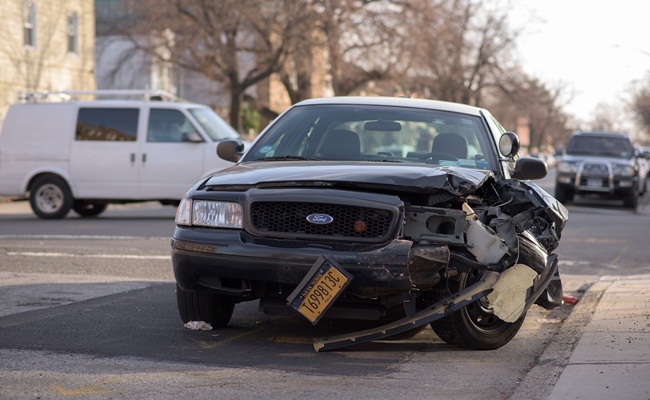Car accident? Make sure you take these five steps right away.
Getting into a car accident is not an easy thing. Making sure you are okay legally right after the accident is very important. In this article, you will learn the specific steps you need to take in the moments following the accident.
Car accidents in the United States
According to data curated by Bankrate, there are an estimated 5 million to 6 million car accidents in the United States each year. These accidents lead to an estimated 3 million injuries and 36,100 deaths per year.
Common causes of car accidents include distracted driving, speeding, drunk driving, reckless driving, inclement weather, running red lights, and poorly maintained vehicles (malfunctioning brakes, tire blowouts, etc.).
If you’re injured in a car accident, you aren’t alone. Common injuries and symptoms of car accidents include bruising and contusions, whiplash, back and neck injuries, concussions, traumatic brain injuries, post-traumatic stress disorder (PTSD), broken bones, and internal bleeding.
Five steps you should take
Car accidents are dramatic and jarring. (It’s not something you expect to happen – and you can’t prepare for it.) Having said that, here are some basic steps you should follow:
1. Check for injuries
The first thing you do is check for injuries. The advice here is similar to the instruction you receive from the airline stewardess before takeoff. Check yourself before checking others in your vehicle (or the other vehicle). You have to make sure you’re okay before you can help others.
When checking for injuries, perform a visual analysis. Look for signs of lacerations, blood, broken bones, or other issues. Then proceed to do the same for passengers.
2. Call the authorities
The next step is to call the authorities to the scene. In all likelihood, you’ll want to dispatch both law enforcement and EMS. Even if everyone appears to be fine, having a medical professional at the scene is always a good idea. Adrenaline can often mask symptoms and hide injuries. Getting evaluated by a healthcare professional is a must. (Particularly when it comes to head injuries.)
3. Record evidence
If you’re in stable condition, do your best to record whatever evidence that you can. This may include a written or oral statement, pictures of the scene, contact information for witnesses, etc. All of this information will prove useful when filing your claim and negotiating with insurance companies.
4. Call a car accident attorney
Once you’ve received medical attention, you’ll want to go ahead and call a car accident attorney. This might seem excessive – particularly if you don’t have any serious symptoms – but it’s highly recommended. Calling an attorney doesn’t mean you’re committing to hiring one. You’re just doing your due diligence and seeing if you have a case.
When considering attorneys, look for someone who is experienced and specialized. You want someone who is totally comfortable and equipped to handle your case. It’s also worth asking the attorney for an opinion on your case. Car accident attorneys typically operate on a contingency fee basis. This means they only make money if there’s a successful claim or payout. In other words, they won’t take a case if they don’t think they can win.
In California, for instance, you can schedule a free consultation with experienced attorneys at themvp.com. They specialize in car accident cases and can provide you with personalized legal advice based on the specific circumstances of your accident. They can help you understand the legal process and work with you to build a strong case.
5. Stay tight-lipped
After a car accident, you’ll usually have to give a statement to the police officer at the scene. Give the facts (and speak the truth), but don’t provide any more details than necessary. It’s important that you speak with your attorney to figure out the best strategy.
The same goes for the insurance companies. They’ll try to ask you leading questions and get you to say something that you don’t intend to say in order to devalue your claim. It’s best to stay tight-lipped and to let your attorney handle most of the questions and negotiations on your behalf.
Whatever you do, don’t accept the insurance company’s first settlement offer. It’s often worth just a fraction of the actual claim’s value. Hear them out, say no, and then consult with your attorney to begin negotiations.
Look out for number one
It might sound selfish, but you have to look out for yourself after a car accident. If you don’t, the car insurance companies will take advantage of you and turn you into a victim two times over.
Hire a good attorney and listen to their counsel. Everything else should hopefully fall into place.
Photo by Michael Jin on Unsplash

































































































































